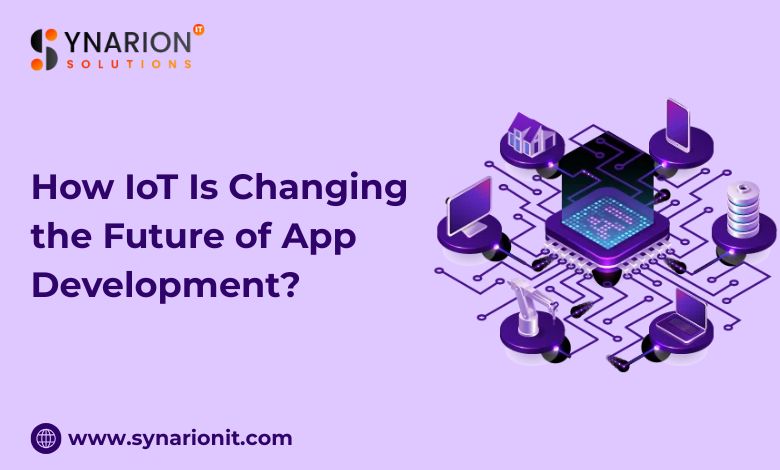


IoT revolutionizes app development by enabling smarter, connected, and more responsive applications across industries.
The Internet of Things (IoT) is rapidly transforming the digital landscape, revolutionizing not only how we interact with devices but also how applications are developed, deployed, and maintained. With billions of connected devices in use across homes, industries, and cities, IoT is reshaping the way developers approach modern software solutions. As a result, IoT App Development is emerging as a crucial discipline within the tech industry, enabling seamless connectivity, real-time data processing, and smart automation.
At its core, IoT connects everyday objects to the internet, enabling them to collect, exchange, and act on data. From smart thermostats and wearable health devices to industrial sensors and autonomous vehicles, the applications of IoT are vast. The demand for intelligent apps that can interact with such devices is pushing developers and companies to adopt new paradigms in app development.
An IoT App Development Company plays a central role in this shift by designing applications that bridge the gap between users and their smart environments. These applications are no longer limited to screens and inputs; they must now interact with sensors, cloud platforms, and AI-driven analytics in real-time.
IoT devices generate a massive amount of data. This influx demands apps to be data-driven from the ground up. Developers must design applications that can not only capture this data but also process and visualize it in meaningful ways. Real-time analytics, dashboards, and predictive insights are now integral components of modern IoT apps.
With IoT, the user experience goes beyond traditional interfaces. Apps now communicate with devices through voice commands, gestures, and automated routines. An effective IoT App Development process considers the context in which users interact with connected devices, offering intuitive, responsive, and personalized experiences.
IoT devices often require low-latency communication and real-time processing, which has led to a hybrid architecture combining cloud and edge computing. App developers must ensure seamless integration with cloud platforms like AWS, Azure, or Google Cloud, while also optimizing for edge processing when needed. This dual approach enhances performance and reduces bandwidth usage.
As more devices connect to the internet, the risk of cyber threats increases significantly. Security is a primary concern in IoT app development. Developers need to implement end-to-end encryption, secure authentication, regular firmware updates, and compliance with data privacy regulations. An experienced IoT App Development Company understands these risks and builds robust, secure applications accordingly.
IoT environments often consist of heterogeneous devices with varying operating systems and communication protocols. Successful IoT applications must work seamlessly across these different platforms. This pushes developers to adopt cross-platform development frameworks and standardize APIs to ensure consistent functionality across all devices.
AI and machine learning play a pivotal role in making IoT systems smarter. From recognizing patterns in sensor data to automating responses based on user behavior, AI enhances the functionality of IoT applications. Developers are now required to integrate AI models directly into IoT apps to provide predictive insights and intelligent automation.
The future of app development is undeniably tied to the evolution of IoT. As 5G networks expand and smart devices become more prevalent, the expectations for real-time, responsive applications will only grow. Developers will need to continually evolve their skillsets, adopting emerging technologies such as blockchain for IoT security, digital twins for simulation, and augmented reality for enhanced visualization.
Moreover, the convergence of IoT with other tech trends like wearable technology, smart cities, and connected vehicles will create even more opportunities—and challenges—for app developers.
IoT is no longer a niche technology; it is becoming a fundamental part of the digital ecosystem. The way applications are designed, built, and used is undergoing a significant transformation, driven by the need to interact with a growing network of smart devices. IoT App Development is at the heart of this revolution, offering innovative solutions that are redefining connectivity, automation, and intelligence.
By partnering with an experienced IoT App Development Company, businesses can stay ahead of the curve, delivering apps that are not only functional but also future-ready. As the IoT landscape continues to evolve, the fusion of hardware and software in application development will shape the digital experiences of tomorrow.
